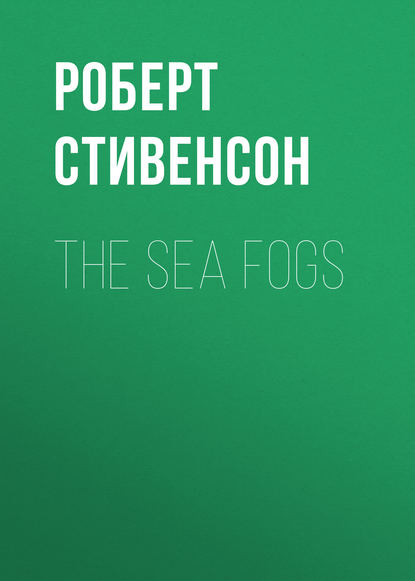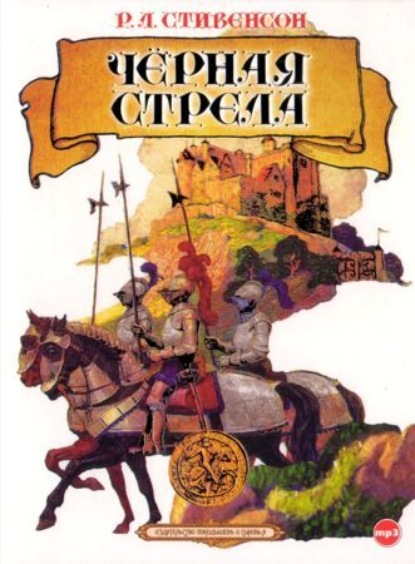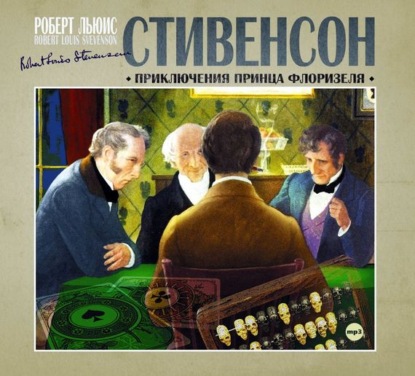 Полная версия
Полная версияПолная версия:
Роберт Льюис Стивенсон The Sea Fogs
- + Увеличить шрифт
- - Уменьшить шрифт

Robert Louis Stevenson
The Sea Fogs
Introduction
Robert Louis Stevenson first came to California in 1879 for the purpose of getting married. The things that delayed his marriage are sufficiently set forth in his "Letters" (edited by Sidney Colvin) and in his "Life" (written by Graham Balfour). It is here necessary to refer only to the last of the obstacles, the breaking down of his health. It is in connection with the evil thing that came to him at this time that he first makes mention of "the sea fogs," that beset a large part of the California coast. He speaks of them as poisonous; and poisonous they are to any one who is afflicted with pulmonary weakness, but bracing and glorious to others. They give the charm of climate to dwellers around the great bay. How he took this first very serious attack of the terrible malady is indicated in the letter to Edmund Gosse, dated April 16, 1880. His attitude toward death is shown here, and is further shown in his little paper AEs Triplex, in which he successfully vindicates his generation from the charge of cowardice in the face of death. Stevenson's two distinguishing characteristics were his courage and his determination to be happy as the right way of making other people happy. His courage, far more than change of scene and climate, gave him fourteen more years in which to contribute to the sweetness and light of the world. These years were made fruitful to others by his determined happiness, a happiness in which the main factor, outside of his own determination, came from the companionship which his marriage brought to him. The great principles by which he lived influenced those who did not know him personally, through his gift of writing. He always maintained that it was not a gift but an achievement, and that any one could write as well as he by taking as much pains. We may well doubt the soundness of this theory, but we cannot doubt the spiritual attitude from which it came. It came from no mock humility, but from a feeling that nothing was creditable to him except what he did. He asked no credit for the talents committed to his charge. He asked credit only for the use be made of the talents.
Stevenson was married May 19, 1880. His health, which had delayed the marriage, determined the character of the honeymoon. He must get away from the coast and its fogs. His honeymoon experiences are recorded in one of the most delightful of his minor writings, "The Silverado Squatters." He went, with his wife, his stepson and a dog, to squat on the eastern shoulder of Mount Saint Helena, a noble mountain which closes and dominates the Napa Valley, a wonderful and fertile valley, running northward from the bay of San Francisco. Silverado was a deserted mining-camp. Stevenson has intimated that there are more ruined cities in California than in the land of Bashan, and in one of these he took up his residence for about two months, "camping" in the deserted quarters of the extinct mining company. Had he gone a little beyond the toll-house, just over the shoulder of the mountain, he would probably never have seen the glory of "the sea fogs." It would have been better for his health but worse for English literature.
My first knowledge of that glory came to me twenty years ago. I had come to California to care for one dearly beloved by me, who was fighting the same fight that Stevenson fought, and against the same enemy, and who was fighting it just as bravely. I took him to the summit of the Santa Cruz Mountains in the hope that we might escape the fogs. As I watched on the porch of the little cottage where he lay, I saw night after night what I believe to be the most beautiful of all natural phenomena, the sea fog of the Pacific, seen from above. Under the full moon, or under the early sun which slowly withers it away, the great silver sea with its dark islands of redwood seemed to me the most wonderful of things. With my wonder and delight, perhaps making them more poignant, was the fear lest the glory should mount too high, and lay its attractive hand on my beloved. The fog has been dear to me ever since. I have often grumbled at it when I was in it or under it, but when I have seen it from above, that first thrill of wonder and delight has come back to me – always. Whether on the Berkeley hills I see its irresistible columns moving through the Golden Gate across the bay to take possession of the land, or whether I stand on the height of Tamalpais and look at the white, tangled flood below, —
"My heart leaps up when I behold."It remains to me —
"A vision, a delight and a desire."When the beauty of the fog first got hold of me, I wondered whether any one had given literary expression to its supreme charm. I searched the works of some of the better-known California poets, not quite without result. I was familiar with what seem to me the best of the serious verses of Bret Harte, the lines on San Francisco, – wherein the city is pictured as a penitent Magdalen, cowled in the grey of the Franciscans, – the soft pale grey of the sea fog. The literary value of the figure is hardly injured by the cold fog that the penitence of this particular Magdalen has never been of an enduring quality. It is to be noted that what Harte speaks of is not the beauty of the fog, but its sobriety and dignity.
Sill, with his susceptibility to the infinite variety of nature and with the spark of the divine fire which burned in him, refers often to some of the effects of the fog, such as the wonderful sunset colors on the Berkeley hills in summer. But I find only one direct allusion to the beauty of the fog itself: —
1"There lies a little city in the hills; White are its roofs, dim is each dwelling's door, And peace with perfect rest its bosom fills. "There the pure mist, the pity of the sea, Comes as a white, soft hand, and reaches o'er And touches its still face most tenderly."In 1887 I had not read "The Silverado Squatters." Part of it had been published in Scribner's Magazine. It was only in the following year that I got hold of the book and found an almost adequate expression of my own feeling about the sea fogs. Stevenson did not know all their beauty, for he was not here long enough, but he could tell what he saw. In other words, he had a gift which is denied to most of us.
Silverado is now a quite impossible place for squatting. When I first tried to enter, I found it so given over to poison-oak and rattlesnakes that I did not care to pursue my investigations very far. I did not know at that time that I was quite immune from the poison of the oak and that the California rattlesnake was quite so friendly and harmless an animal as John Muir has since assured us that he is. The last time that I passed Silverado, it was accessible only by the aid of a gang of wood-choppers.
Curiously, the last great fog effect that I have seen was almost the same which Stevenson has described. Last summer we had been staying for a month with our friends who have a summer home about three miles beyond Stevenson's "toll-house." It is, I believe, the most beautiful country-seat on this round earth, and its free and gentle hospitality cannot be surpassed. We left this delightful place of sojourning between three and four o'clock in the morning to catch the early train from Calistoga. Our steep climb up to the toll-house was under the broad smile of the moon, which gradually gave way to the brilliant dawn. When we passed the toll-house, the whole Napa Valley should have been revealed to us, but it was not. The fog had surged through it and had hidden it. What we saw was better than the beautiful Napa Valley. I should like to tell what we saw, but I cannot, – "For what can the man do who cometh after the king?"
THE SEA FOGS
A change in the colour of the light usually called me in the morning. By a certain hour, the long, vertical chinks in our western gable, where the boards had shrunk and separated, flashed suddenly into my eyes as stripes of dazzling blue, at once so dark and splendid that I used to marvel how the qualities could be combined. At an earlier hour, the heavens in that quarter were still quietly coloured, but the shoulder of the mountain which shuts in the canyon already glowed with sunlight in a wonderful compound of gold and rose and green; and this too would kindle, although more mildly and with rainbow tints, the fissures of our crazy gable. If I were sleeping heavily, it was the bold blue that struck me awake; if more lightly, then I would come to myself in that earlier and fairer light.
One Sunday morning, about five, the first brightness called me. I rose and turned to the east, not for my devotions, but for air. The night had been very still. The little private gale that blew every evening in our canyon, for ten minutes or perhaps a quarter of an hour, had swiftly blown itself out; in the hours that followed, not a sigh of wind had shaken the treetops; and our barrack, for all its breaches, was less fresh that morning than of wont. But I had no sooner reached the window than I forgot all else in the sight that met my eyes, and I made but two bounds into my clothes, and down the crazy plank to the platform.
The sun was still concealed below the opposite hilltops, though it was shining already, not twenty feet above my head, on our own mountain slope. But the scene, beyond a few near features, was entirely changed. Napa Valley was gone; gone were all the lower slopes and woody foothills of the range; and in their place, not a thousand feet below me, rolled a great level ocean. It was as though I had gone to bed the night before, safe in a nook of inland mountains and had awakened in a bay upon the coast. I had seen these inundations from below; at Calistoga I had risen and gone abroad in the early morning, coughing and sneezing, under fathoms on fathoms of gray sea vapour, like a cloudy sky – a dull sight for the artist, and a painful experience for the invalid. But to sit aloft one's self in the pure air and under the unclouded dome of heaven, and thus look down on the submergence of the valley, was strangely different and even delightful to the eyes. Far away were hilltops like little islands. Nearer, a smoky surf beat about the foot of precipices and poured into all the coves of these rough mountains. The colour of that fog ocean was a thing never to be forgotten. For an instant, among the Hebrides and just about sundown, I have seen something like it on the sea itself. But the white was not so opaline; nor was there, what surprisingly increased the effect, that breathless crystal stillness over all. Even in its gentlest moods the salt sea travails, moaning among the weeds or lisping on the sand; but that vast fog ocean lay in a trance of silence, nor did the sweet air of the morning tremble with a sound.
As I continued to sit upon the dump, I began to observe that this sea was not so level as at first sight it appeared to be. Away in the extreme south, a little hill of fog arose against the sky above the general surface, and as it had already caught the sun it shone on the horizon like the topsails of some giant ship. There were huge waves, stationary, as it seemed, like waves in a frozen sea; and yet, as I looked again, I was not sure but they were moving after all, with a slow and august advance. And while I was yet doubting, a promontory of the hills some four or five miles away, conspicuous by a bouquet of tall pines, was in a single instant overtaken and swallowed up. It reappeared in a little, with its pines, but this time as an islet and only to be swallowed up once more and then for good. This set me looking nearer, and I saw that in every cove along the line of mountains the fog was being piled in higher and higher, as though by some wind that was inaudible to me. I could trace its progress, one pine tree first growing hazy and then disappearing after another; although sometimes there was none of this forerunning haze, but the whole opaque white ocean gave a start and swallowed a piece of mountain at a gulp. It was to flee these poisonous fogs that I had left the seaboard, and climbed so high among the mountains. And now, behold, here came the fog to besiege me in my chosen altitudes, and yet came so beautifully that my first thought was of welcome.
The sun had now gotten much higher, and through all the gaps of the hills it cast long bars of gold across that white ocean. An eagle, or some other very great bird of the mountain, came wheeling over the nearer pinetops, and hung, poised and something sideways, as if to look abroad on that unwonted desolation, spying, perhaps with terror, for the eyries of her comrades. Then, with a long cry, she disappeared again toward Lake County and the clearer air. At length it seemed to me as if the flood were beginning to subside. The old landmarks, by whose disappearance I had measured its advance, here a crag, there a brave pine tree, now began, in the inverse order, to make their reappearance into daylight. I judged all danger of the fog was over. This was not Noah's flood; it was but a morning spring, and would now drift out seaward whence it came. So, mightily relieved, and a good deal exhilarated by the sight, I went into the house to light the fire.
I suppose it was nearly seven when I once more mounted the platform to look abroad. The fog ocean had swelled up enormously since last I saw it; and a few hundred feet below me, in the deep gap where the Toll House stands and the road runs through into Lake County, it had already topped the slope, and was pouring over and down the other side like driving smoke. The wind had climbed along with it; and though I was still in calm air, I could see the trees tossing below me, and their long, strident sighing mounted to me where I stood.
Half an hour later, the fog had surmounted all the ridge on the opposite side of the gap, though a shoulder of the mountain still warded it out of our canyon. Napa Valley and its bounding hills were now utterly blotted out. The fog, sunny white in the sunshine, was pouring over into Lake County in a huge, ragged cataract, tossing treetops appearing and disappearing in the spray. The air struck with a little chill, and set me coughing. It smelt strong of the fog, like the smell of a washing-house, but with a shrewd tang of the sea-salt.
Had it not been for two things – the sheltering spur which answered as a dyke, and the great valley on the other side which rapidly engulfed whatever mounted – our own little platform in the canyon must have been already buried a hundred feet in salt and poisonous air. As it was, the interest of the scene entirely occupied our minds. We were set just out of the wind, and but just above the fog; we could listen to the voice of the one as to music on the stage; we could plunge our eyes down into the other, as into some flowing stream from over the parapet of a bridge; thus we looked on upon a strange, impetuous, silent, shifting exhibition of the powers of nature, and saw the familiar landscape changing from moment to moment like figures in a dream.
The imagination loves to trifle with what is not. Had this been indeed the deluge, I should have felt more strongly, but the emotion would have been similar in kind. I played with the idea as the child flees in delighted terror from the creations of his fancy. The look of the thing helped me. And when at last I began to flee up the mountain, it was indeed partly to escape from the raw air that kept me coughing, but it was also part in play.
As I ascended the mountainside, I came once more to overlook the upper surface of the fog; but it wore a different appearance from what I had beheld at daybreak. For, first, the sun now fell on it from high overhead, and its surface shone and undulated like a great nor'land moor country, sheeted with untrodden morning snow. And, next, the new level must have been a thousand or fifteen hundred feet higher than the old, so that only five or six points of all the broken country below me still stood out. Napa Valley was now one with Sonoma on the west. On the hither side, only a thin scattered fringe of bluffs was unsubmerged; and through all the gaps the fog was pouring over, like an ocean into the blue clear sunny country on the east. There it was soon lost; for it fell instantly into the bottom of the valleys, following the watershed; and the hilltops in that quarter were still clear cut upon the eastern sky.
Through the Toll House gap and over the near ridges on the other side, the deluge was immense. A spray of thin vapour was thrown high above it, rising and falling, and blown into fantastic shapes. The speed of its course was like a mountain torrent. Here and there a few treetops were discovered and then whelmed again; and for one second, the bough of a dead pine beckoned out of the spray like the arm of a drowning man. But still the imagination was dissatisfied, still the ear waited for something more. Had this indeed been water (as it seemed so, to the eye), with what a plunge of reverberating thunder would it have rolled upon its course, disembowelling mountains and deracinating pines And yet water it was and sea-water at that – true Pacific billows, only somewhat rarefied, rolling in mid-air among the hilltops.
I climbed still higher, among the red rattling gravel and dwarf underwood of Mount Saint Helena, until I could look right down upon Silverado, and admire the favoured nook in which it lay. The sunny plain of fog was several hundred feet higher; behind the protecting spur a gigantic accumulation of cottony vapour threatened, with every second to blow over and submerge our homestead; but the vortex setting past the Toll House was too strong; and there lay our little platform, in the arms of the deluge, but still enjoying its unbroken sunshine. About eleven, however, thin spray came flying over the friendly buttress, and I began to think the fog had hunted out its Jonah after all. But it was the last effort. The wind veered while we were at dinner, and began to blow squally from the mountain summit and by half-past one all that world of sea fogs was utterly routed and flying here and there into the south in little rags of cloud. And instead of a lone sea-beach, we found ourselves once more inhabiting a high mountainside, with the clear green country far below us, and the light smoke of Calistoga blowing in the air.
This was the great Russian campaign for that season. Now and then, in the early morning, a little white lakelet of fog would be seen far down in Napa Valley but the heights were not again assailed, nor was the surrounding world again shut off from Silverado.
Here Ends No. One the Western Classics Being The Sea Fogs by Robert
Louis Stevenson With an Introduction by Thomas Rutherford Bacon & A
Photogravure Frontispiece After A Painting by Albertine Randall Wheelan
of this First Edition One Thousand Copies Have Been Issued Printed Upon
Fabriano Handmade Paper the Typography Designed by J. H. Nash Published
by Paul Elder and Company & Done Into A Book for Them at the Tomoye
Press in the City of New York MCMVII
1
This exquisite little poem is unaccountably omitted from the Household (and presumably complete) Edition of Sill's poems issued by Houghton, Mifflin & Co., 1906. It is found in the little volume, "Poems," by Edward Rowland Sill, published by the same firm at an earlier date. Mountain View Cemetery is no longer a "little city."



